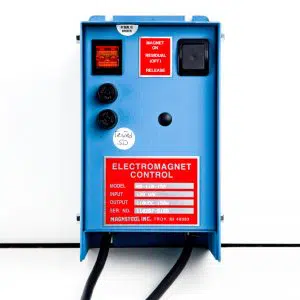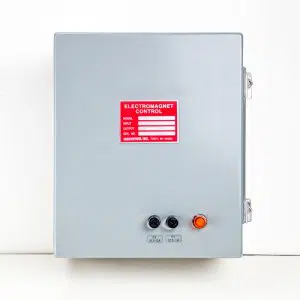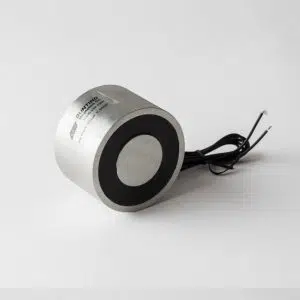Electromagnets
Filter Results
Strong Electromagnets – 100% Duty Cycle
Electromagnets from BuyMagnets.com provide an efficient, economical solution for handling and holding ferrous parts. BuyMagnets.com stocks many different shapes and sizes of electromagnets which are suitable for use in a wide variety of manual and automated applications. Choose from strong, small rectangular electromagnets and round electromagnets. By utilizing a combination of electricity and magnetism, electromagnets excel at holding ferrous materials. Because an electromagnet’s current—and magnetic field—can be switched on and off, electromagnets have unique utility and advantages. Namely, electromagnets are ideal for picking up items at one location, transporting them, and then releasing them at a destination. Electromagnets increase production and facilitate automation.
Note: Electromagnets operate as holding magnets when they come in direct contact with ferrous materials, they will not attract or repel ferrous materials when placed at a distance. All electromagnets require a proper supply in order to be operated properly.
View our Electromagnet Wiring Diagram Here




